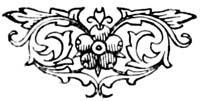The Assault Harbingers Infestation Box
Set Books 5 8 Peretti Frank E
Visit to download the full and correct content document: https://textbookfull.com/product/the-assault-harbingers-infestation-box-set-books-5-8peretti-frank-e/
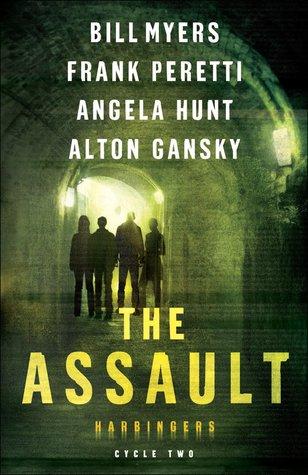
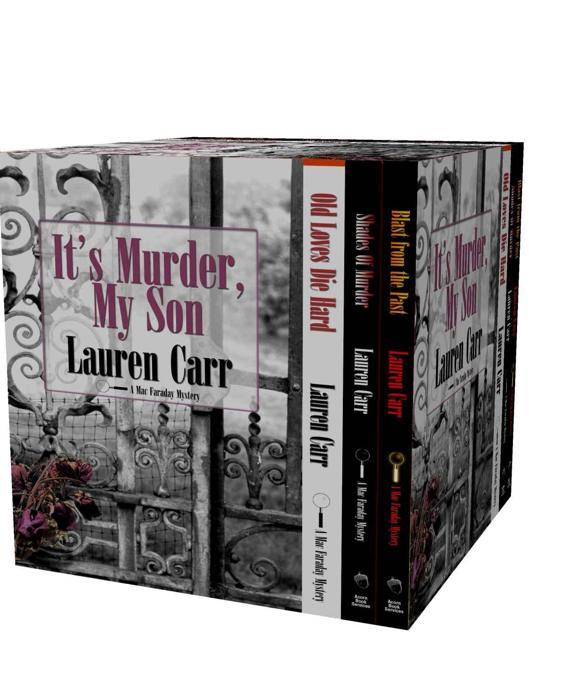
The Mac Faraday Mysteries Box Set 5 Books Lauren Carr
https://textbookfull.com/product/the-mac-faraday-mysteries-boxset-5-books-lauren-carr/
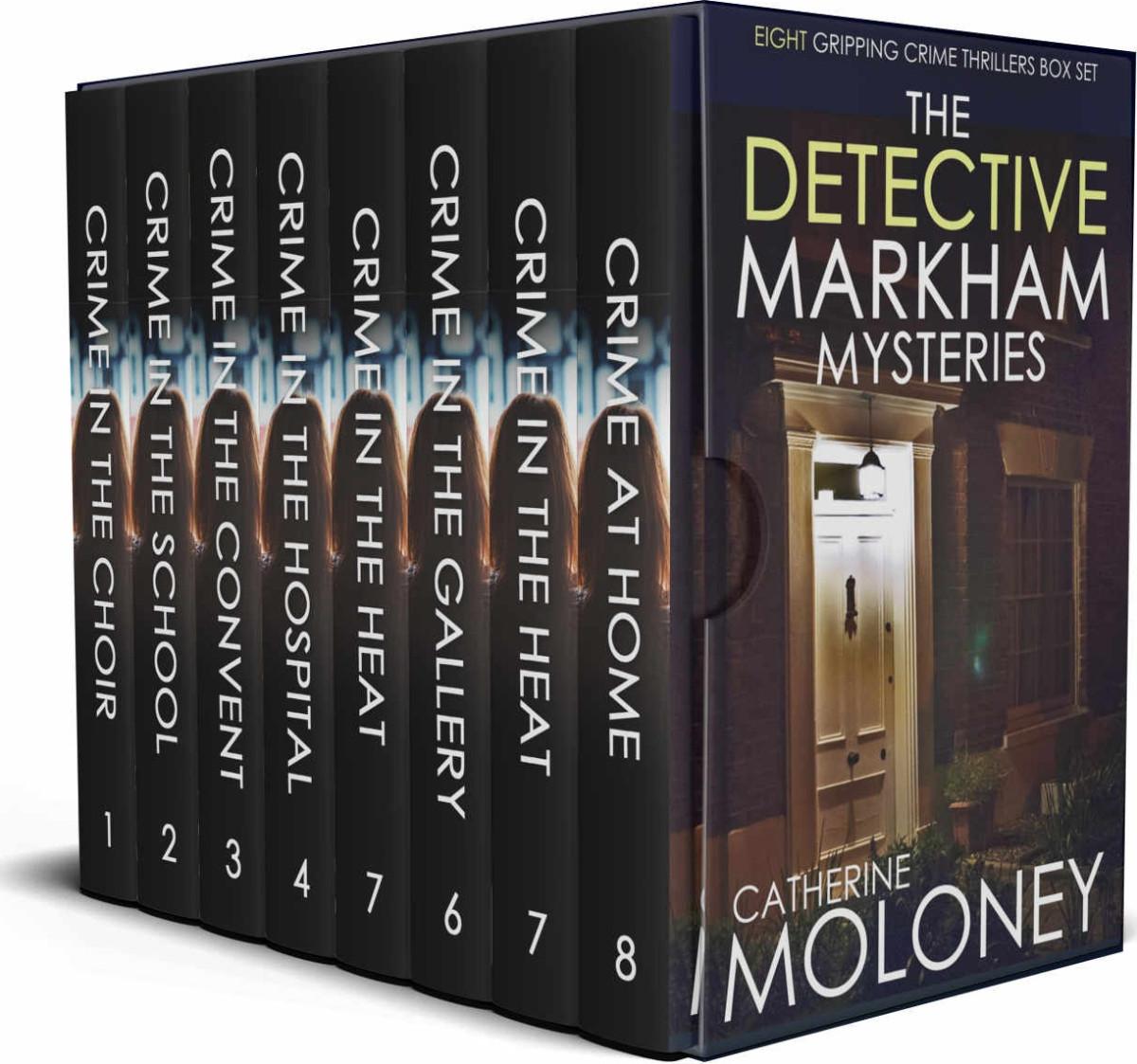
Detective Markham Mysteries Box Set Books 1 8 Catherine Moloney
https://textbookfull.com/product/detective-markham-mysteries-boxset-books-1-8-catherine-moloney/
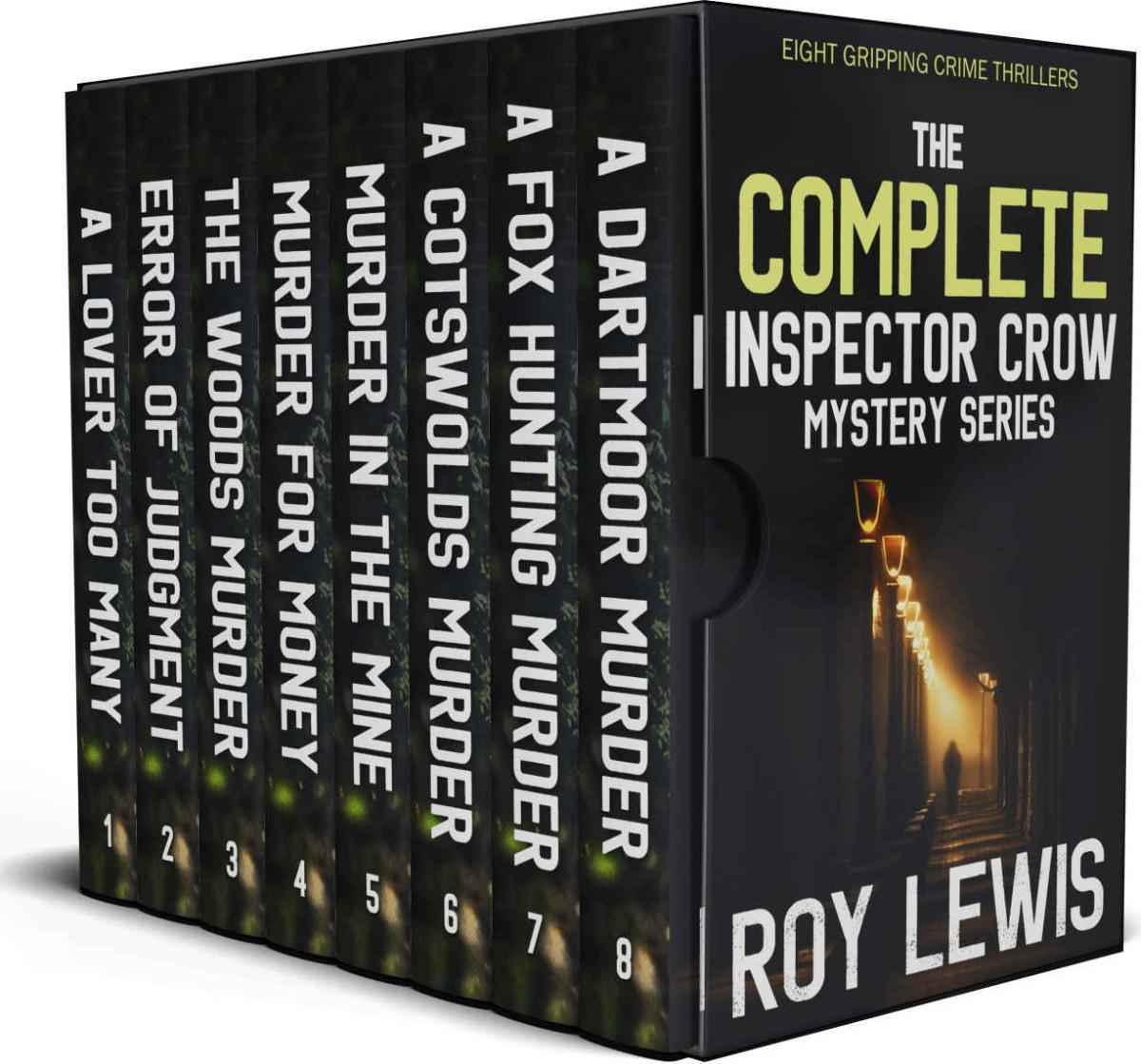
THE COMPLETE INSPECTOR CROW MYSTERY Box Set
Roy Lewis
https://textbookfull.com/product/the-complete-inspector-crowmystery-box-set-books-1-8-roy-lewis/
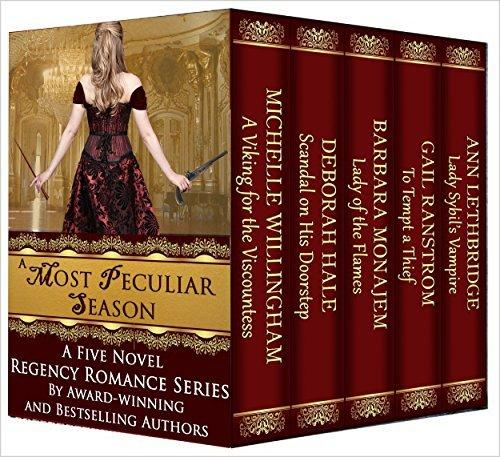
A Most Peculiar Season Box Set 5 Books Michelle Willingham
https://textbookfull.com/product/a-most-peculiar-season-boxset-5-books-michelle-willingham/
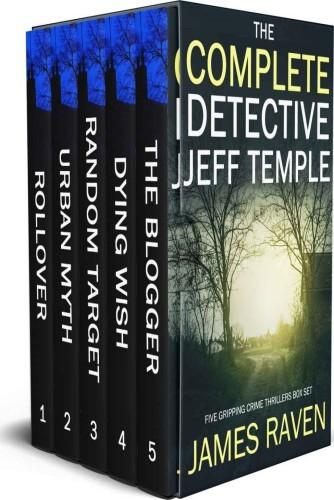
The Complete Detective Jeff Temple Box Set Books 1 5
James Raven
https://textbookfull.com/product/the-complete-detective-jefftemple-box-set-books-1-5-james-raven/

Detective Jack Daws Mystery Box Set Books 1 5 Frances
Lloyd
https://textbookfull.com/product/detective-jack-daws-mystery-boxset-books-1-5-frances-lloyd/

Eva Rae Thomas Mystery Box Set Books 5 6 Willow Rose
https://textbookfull.com/product/eva-rae-thomas-mystery-box-setbooks-5-6-willow-rose/

Frank Miller Crime Series Box Set - Books 1-3 John
Carson Et El
https://textbookfull.com/product/frank-miller-crime-series-boxset-books-1-3-john-carson-et-el/
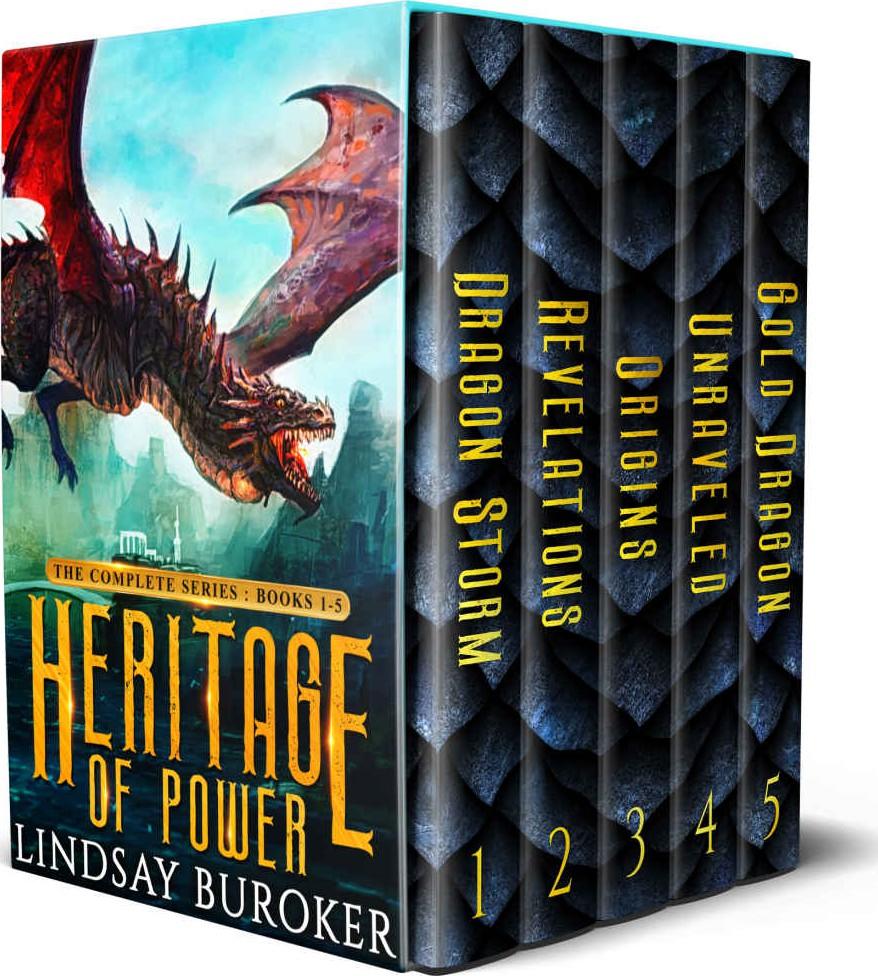
Heritage of Power The Complete Series Box Set Books 1 5
An epic dragon fantasy boxed set Lindsay Buroker
https://textbookfull.com/product/heritage-of-power-the-completeseries-box-set-books-1-5-an-epic-dragon-fantasy-boxed-setlindsay-buroker/
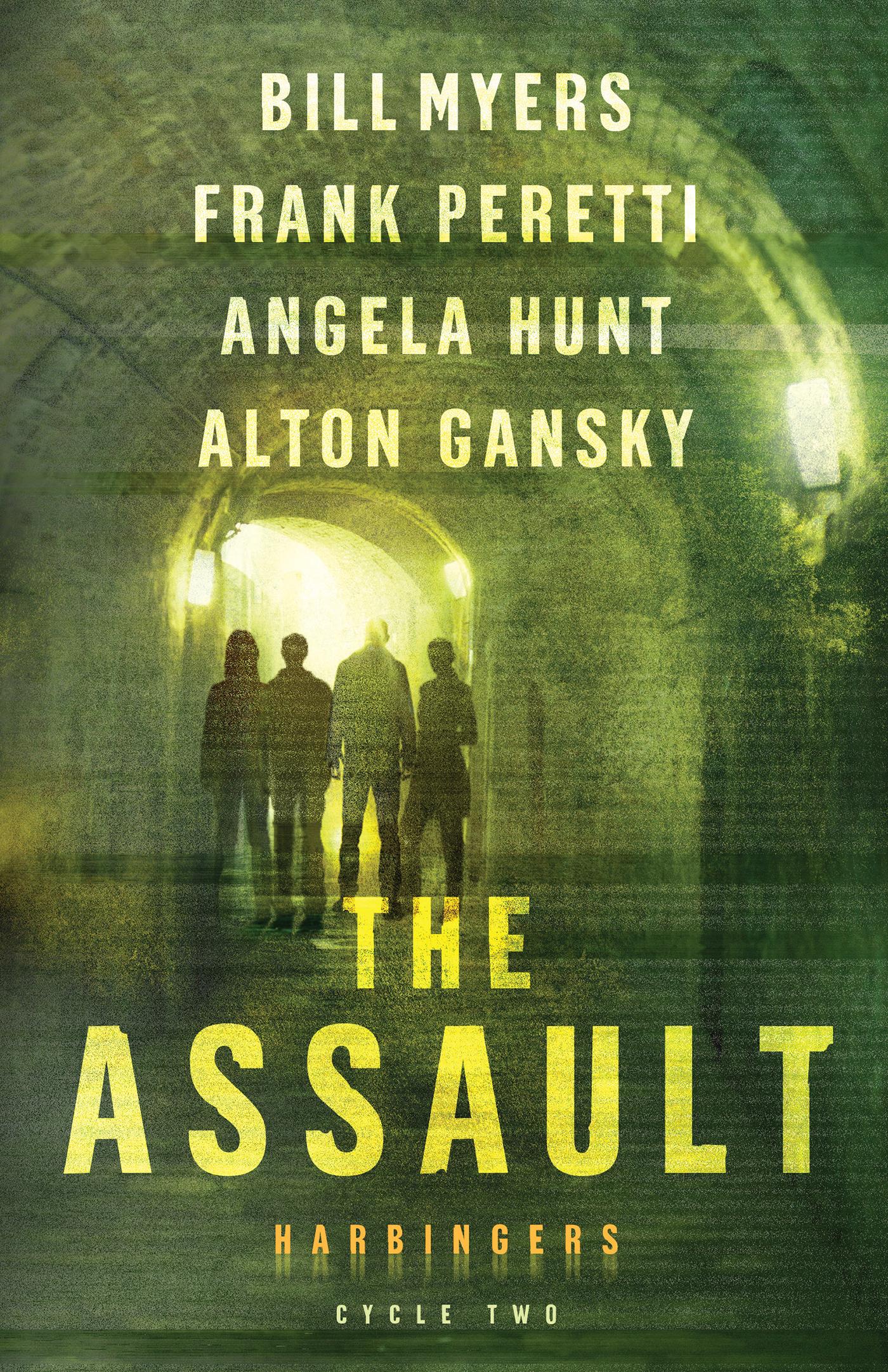
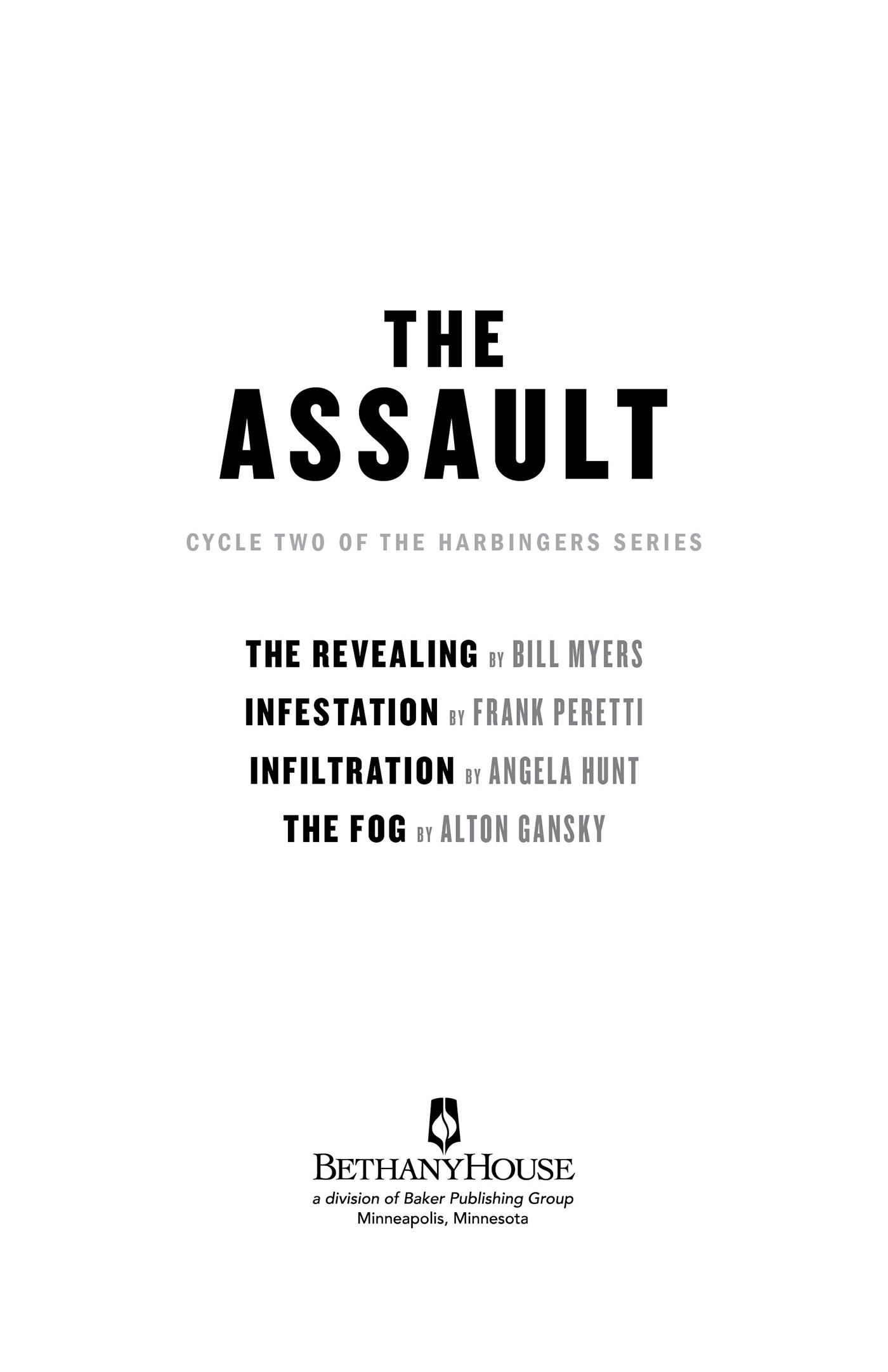
The Revealing © 2017 Bill Myers
Infestation © 2017 Frank Peretti
Infiltration © 2017 Angela Hunt
The Fog © 2017 Alton Gansky
Published by Bethany House Publishers
11400 Hampshire Avenue South Bloomington, Minnesota 55438 www.bethanyhouse.com
Bethany House Publishers is a division of Baker Publishing Group, Grand Rapids, Michigan www.bakerpublishinggroup.com
Ebook edition created 2017
All rights reserved. No part of this publication may be reproduced, stored in a retrieval system, or transmitted in any form or by any means for example, electronic, photocopy, recording without the prior written permission of the publisher. The only exception is brief quotations in printed reviews.
Library of Congress Cataloging-in-Publication Data is on file at the Library of Congress, Washington, DC.
ISBN 978-1-4412-3146-8
This is a work of fiction. Names, characters, incidents, and dialogues are products of the authors’ imagination and are not to be construed as real. Any resemblance to actual events or persons, living or dead, is entirely coincidental.
Cover design by Gearbox
Sneak Peek of Episode 9: The Leviathan.
Selected Books by Bill Myers
Selected Books by Frank Peretti
Selected Books by Angela Hunt
Selected Books by Alton Gansky
Back Cover
In this fast-paced world with all its demands, the four of us wanted to try something new. Instead of the longer novel format, we wanted to write something equally as engaging but that could be read in one or two sittings—on the plane, waiting to pick up the kids from soccer, or as an evening’s read.
We also wanted to play. As friends and seasoned novelists, we thought it would be fun to create a game we could participate in together. The rules were simple:
RULE #1
Each of us would write as if we were one of the characters in the series:
Bill Myers would write as Brenda, the street-hustling tattoo artist who sees images of the future.
Frank Peretti would write as the professor, the atheist ex-priest ruled by logic.
Angela Hunt would write as Andi, the professor’s brilliant but geeky assistant who sees inexplicable patterns.
Alton Gansky would write as Tank, the naïve, big-hearted jock with a surprising connection to a healing power.
RULE #2
Instead of the four of us writing one novella together (we’re friends but not crazy), we would write it like a TV series. There would be an overarching storyline into which we’d plug our individual novellas, with each story written from our character’s point of view.
If you’re keeping track, this is the order:
Harbingers #1—TheCall—Bill Myers
Harbingers #2—TheHaunted—Frank Peretti
Harbingers #3—TheSentinels Angela Hunt
Harbingers #4—TheGirl—Alton Gansky
Volumes #1–4 omnibus: CycleOne:Invitation
Bill’s first novella, TheRevealing, sets the stage for the second cycle, TheAssault. It will be followed by Frank’s Infestation, Angela’s Infiltration, and Alton’s TheFog. And if we keep having fun, we’ll begin a third round and so on until other demands pull us away or, as in TV, we get cancelled.
There you have it. We hope you’ll find these as entertaining in the reading as we did in the writing.
Bill,Frank,Angie,andAl
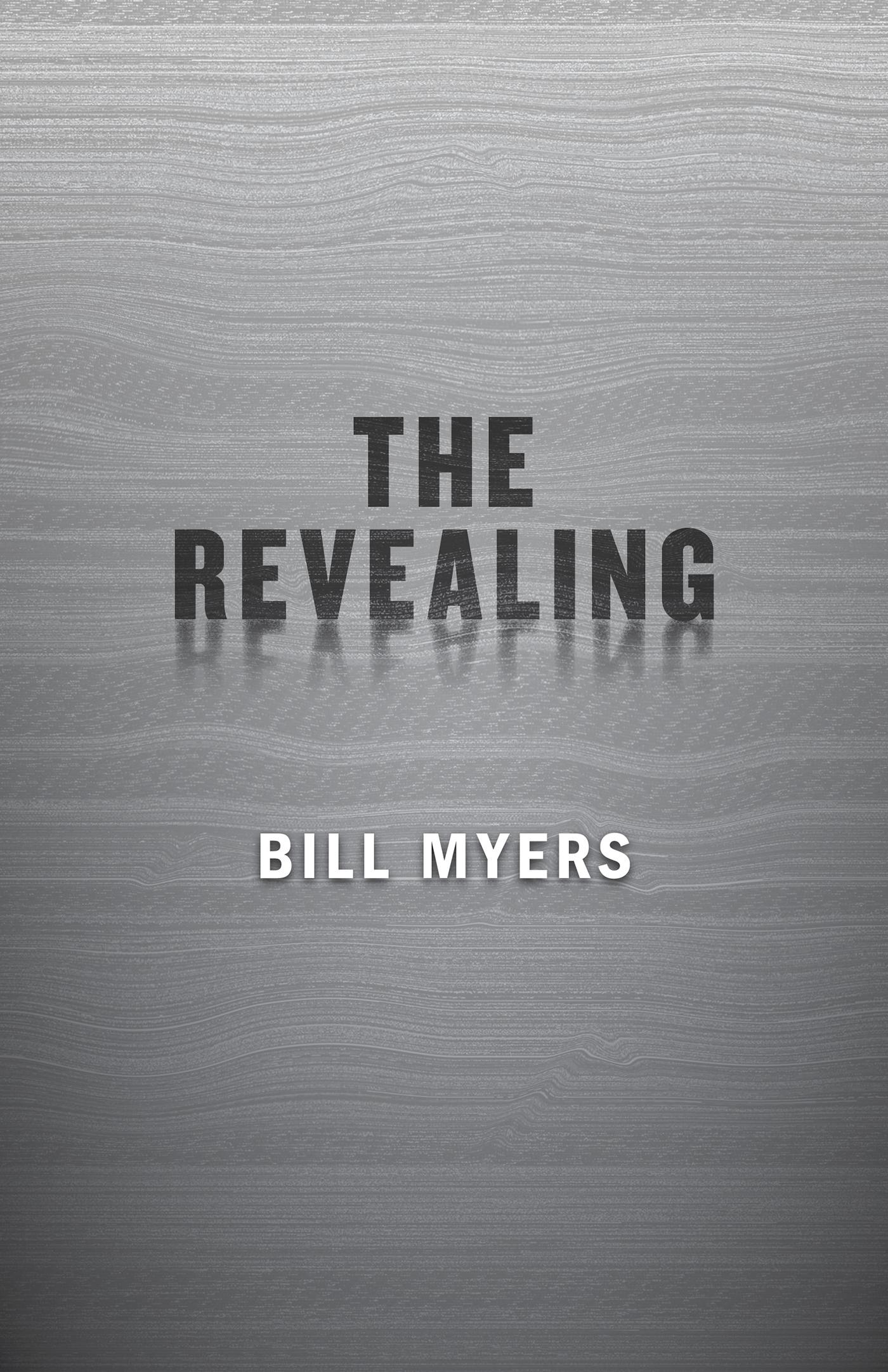
CHAPTER 1
What’re you sketchin’ now?” Cowboy asked.
I flipped my notebook shut like a kid caught with porn.
The big guy smirked. “You know, Miss Brenda, you don’t have to keep hidin’ your gift under a bushel.”
I gave him a look. He gave me one of his good-ol’-boy shrugs. Daniel, who’s sittin’ on my other side, stifles a giggle.
I shoot him a look. “You think that’s funny?”
He grins and imitates Cowboy’s shrug.
I scowl. But the truth is I like that grin. It don’t happen much, but whenever it does, it warms somethin’ up inside me.
The sketch is a blue velvet armchair. It’s got peeling gold paint on its arms. I’ve been seeing it ever since we got on the plane to Rome. Never left my head. Not during the twelve-hour flight with its crap food and rerun movies, not during Mr. Toad’s wild taxi ride from Da Vinci airport to the Vatican, and not as we sat on this buttnumbing wooden bench listening to the professor lay into some pimply-faced man-boy receptionist.
“Well, look again.” The old man waved at the computer screen. “Cardinal Hartmann. You do know what a Cardinal is, do you not?
CardinalHartmann invited us to this location at this particular date and this particular time to—”
“Miscusi, signor, but you cannot have an appointment with—”
“Blast it all, don’t tell me what I can and cannot have.”
“But, such a thing, it is not—”
“I’m sorry, are you part of some special-needs program?”
“Professor . . .” As usual, Andi, his ever-cheerful assistant, stepped in to try to prove her boss was a human being. As usual, the odds were not in her favor.
Meanwhile, Daniel scooted off the bench to get another drink of water. At least that’s what I figured. But the way he cocked his head
upward like he was listening told me one of his “friends” was around.
Miss Congeniality continued smoothing things over. “What the professor means is, we’ve just come from the airport. In fact, we haven’t even gone to our hotel because Cardinal Hartmann sent a very urgent and very personal request for us to visit him today.”
All true. It hadn’t even been a month since the professor sent the Cardinal that scroll with the fancy writing on it. The one some kid, supposedly from another universe, gave us. I know, I know, long story, and I’m not in the mood. The point is, this Cardinal guy, who used to be the professor’s mentor back when the professor believed in God, begged us to come. He sweetened the deal by e-mailing each of us plane tickets. And since I couldn’t cash them in, and since neither me nor Daniel have ever been out of the country, and since the professor pulled some strings to get us some fast passports . . . well, here we were with our ol’ pals, stuck in some backroom reception area that smelled like old men and floor wax.
I glanced over to Daniel. He’d passed the water fountain and stood at a wooden door built into the wall. Hardly visible. He looked back at me like he wanted something.
What?I mouthed.
He just stood there.
What?
Meanwhile, the professor cranked up his personality to super-jerk. “Okay, you do that.”
The receptionist had gotten up and was heading out of the room. “Only make sure you bring back someone with rudimentary communication skills.”
Daniel cleared his throat, real loud to get everyone’s attention. We turned to him as he reached for the door. He pushed it open and motioned for us to join him.
“What is it now?” the professor said. “Do you wish for us to follow? Do you believe there is something inside there?”
Daniel sighed like it was obvious. And for him it probably was. ’Cause like it or not, the kid heard things we never heard. Saw things we never saw. And whether the professor believed in any type
of “higher power” or not made no difference. Our last couple of road trips made it clear Daniel was connected to something.
So, without another word, Dr. Stuffy Butt headed over to join the boy. Something was up, and he knew it.
So did Cowboy. “What’s goin’ on, little fella?” the big jock asked as he rose to his feet.
Daniel pointed to the open doorway. It was dark, but you could just make out some narrow steps. Me and Andi glanced at each other then got up and followed. None of us knew what was going on in that little head of his, but whatever it was, it wouldn’t hurt to pay attention.
Surely you’re not serious?”
CHAPTER 2
“Have I ever lied to you before?”
“Other than matters pertaining to God?”
Cardinal Hartmann waved the professor off with a bony, arthritic hand. “Please, James, do spare us your sophomoric wit. If I’ve taught you anything, was it not to put aside your prejudices? Weigh all the facts and only then reach a reasonable conclusion.”
The professor wasn’t thrilled about being lectured in front of us, but I didn’t mind. It was good to see someone other than me putting him in his place.
We’d found the frail old priest stashed away in some musty little apartment on the third floor. If it wasn’t for Daniel’s inside info we’d never have gotten to him . . . or dodged the locals who would have busted us for skulking around. Even then, it took twenty, maybe thirty minutes to wind through all the halls and stairs before we found him.
The assistant who’d opened the door for us was even skinnier than Hartmann. He wore thick Coke-bottle glasses that hadn’t been cleaned in years. He didn’t say anything, just greeted us with a polite nod and ushered us inside.
Hartmann sat in the center of the room. He was hunched over in the exact chair I’d been sketching all these hours. He was too old to stand and greet us. And when the professor tried to shake his hand, he refused, laughing it off about being a closet germophobe. There was something more, but I couldn’t put my finger on it.
Over on the desk was the scroll the professor had sent the Cardinal. But so far no one had brought it up. Instead, we were sitting in some broken-down apartment listening to some brokendown priest tell us an unbelievable story. Most of it had to do with
the small display case the assistant had wheeled in and the rusty spearhead inside.
The professor tried to be cool, but you could tell he wasn’t happy. “Can you honestly tell me with a straight face that the artifact before us is the reason Hitler started World War II?”
“No.” Hartmann shook his head. “Though my brothers here insist upon this one’s authenticity, there was another lance with greater credentials in the Imperial Treasury in Vienna. That was the one Hitler insisted upon owning—the one both he and Himmler believed had great supernatural powers. A fact underlined by Hitler’s immediate visit to the museum to take possession of it when his troops marched into Vienna.”
The professor said nothing—a first, as far as I could tell. He just sat there, eyeing his old mentor, wondering if the priest had lost his mind. And the more he talked, the more I figured he might be right.
“Because of Hitler’s deep involvement with the occult, he believed whoever controlled the Spear of Destiny would control the world.”
Andi motioned to the display case. “The Spear of Destiny. The one that supposedly pierced Christ’s side at His crucifixion?”
“That is correct. Because it was used to kill God’s Son and because some of His blood remained on it, Hitler believed whoever owned the spear would be invincible.”
We sat in silence a long moment until the professor answered. “Poppycock.”
“Perhaps. But do keep in mind that it is the exact spear Emperor Constantine claimed gave him his power. Then there is the overwhelming evidence that Charlemagne actually slept with it. Finally, we have the minor fact that over forty-five emperors for over a thousand years possessed it and claimed it facilitated their ability to rule.”
“Proving absolutely nothing.”
“And the very day the Nazis lost the spear to General Patton, who later returned it to Vienna, was the very day Hitler committed suicide.”
“That may be true,” Andi said. “But as you said, that’s not this spear here. That’s the one in Vienna.”
“Yes and no. Granted, it is not this spear. However, I do not believe the spear Patton returned to Vienna is the same spear Hitler stole.”
“But you just said—”
“The Nazis were notorious for creating replicas of the treasures they stole. Paintings, statues, religious artifacts—”
“And spears,” Cowboy said.
“That is correct.”
Cowboy stole a glance at Andi, no doubt hoping she noticed his powers of deduction.
She didn’t.
“So if this isn’t the real spear,” she said, “and the one in Vienna isn’t the real one, then—”
There was a knock on the door. Andi stopped as Hartmann raised his hand for us to be quiet. There was another knock. Again he motioned for us to be silent. After what seemed forever, the footsteps faded down the hall.
When they were gone, Hartmann answered Andi’s question. “That is the very reason we have summoned your team here.”
“Team?” I couldn’t help but smirk. “I wouldn’t go calling us a team.”
The priest looked at me. I held his gaze, but he didn’t blink.
He answered. “We have decided you are the ones called to find and retrieve the real Spear of Destiny.”
“We?” I said. “Who’s we?”
He started to answer, then stopped and shook his head.
“And what’s all this got to do with the scroll?” I nodded to the scroll sitting on the desk.
“Everything. And more.”
“Yeah? Like what?”
“You shall find out soon enough.”
I kept staring. There was something about him. He seemed honest enough, I’ll give him that, but there was something.
The professor gave a heavy sigh. “So you brought us halfway around the world to find some mythical artifact with a questionable history that may or may not even exist.”
“Oh, it exists, James.”
The professor continued. “And to what purpose are we retrieving it? To add yet another item to your obscenely bloated Vatican collection?”
“No. To prevent the others from adding it to theirs.”
“Others?” Andi said.
The priest nodded. “Hitler is dead, this is true.”
“At last, a verified fact,” the professor said.
“But there is another force far more powerful.” He turned to the professor. “The very one your overinflated sense of logic keeps denying. One whose power grows stronger every day.”
“I kinda got lost,” Cowboy said. “What force are we talkin’ about?”
“You’ve already encountered it. More than once.” He turned to Andi. “On your beaches.”
Andi frowned. “All those dying fish and birds?”
“And earlier. As far back as your first meeting at the Institute.”
“The Psychic Institute?” I asked.
“It was one of their training grounds.”
“Sridhar,” I said. “The kid mentioned something about an organization. What did he call it?”
A moment then Cowboy beamed. “The Gate.”
“That’s right,” Andi said. “The Gate.”
Cowboy beamed brighter. She didn’t notice.
The priest continued, “Should the spear fall into their hands they shall—”
“—rule the world and make us all their slaves.” The professor’s voice dripped with sarcasm. “No doubt ushering in the postapocalyptic nightmare that will destroy all mankind.”
Hartmann looked at him then answered. “No, not yet. They still need to secure the appropriate items and people. But possessing the spear will greatly expedite their plans.”
Daniel gave a start and spun to the door.
“What’s the matter, little guy?” Cowboy said.
The priest lowered his voice and spoke quickly. “We haven’t much time. It is imperative you find the spear and bring it here as quickly as possible.”
“But . . .” Andi frowned. “How? Where do we start? Where do we —”
There was another knock on the door. Hartmann traded looks with his assistant, who nodded and shuffled over to answer it.
Hartmann turned back to Andi and whispered. “The Appian Way. The catacombs.”
“The catacombs,” the professor scoffed. “Aren’t we being just a bit melo—”
More knocking, louder.
The assistant reached for the handle but was a fraction too late. The door flew open and five wannabe linebackers stormed in. We jumped to our feet ready to defend ourselves.
“No,” Hartmann cried. “Do not resist them. Our meeting is over.”
The first fellow grabbed me. I swore and tried to land a good kick, but he saw it coming. The second guy reached for Andi. Big mistake. Cowboy saw it and threw all 275 pounds at him. They crashed to the floor and traded punches.
“Don’t resist,” the priest kept shouting. “We have finished. Do not resist.”
I searched for Daniel who was off to the side, safe.
“Unhand me, you Neanderthal!” the professor was yelling at the third man.
The other two had joined the one fighting Cowboy. Even at that the odds weren’t exactly in their favor.
“Don’t resist! Bjorn Christensen, there is no need to resist.”
The sound of his name brought Cowboy up short. He turned to the priest.
“We have concluded our business. There is no need to resist.”
They got Cowboy to his feet. “Okay, fellas,” he said. “Take it easy. I heard the man, take it easy.”
They guided us to the open door. I looked over my shoulder to see Daniel trailing close behind. We’d barely made it into the hallway before Hartmann called after us. “The feast is in the kitchen.”
I turned to him.
He nodded and repeated, “The feast is in the kitchen.”
His assistant also nodded, then smiled, then shut the door as the big boys escorted us down the hall.
CHAPTER 3
I wanted Daniel to see some of Rome, especially the Colosseum. We caught a glimpse of it as our taxi shot past. I even got a couple of blurred selfies. But it wasn’t quite the same. Still, it would be somethin’ to show Social Services next time they come snoopin’ around seein’ if I’m a fit guardian.
It took us half an hour to get from the Vatican to the creepy church basement full of human skeletons. Which, to be honest, was probably more exciting to a ten-year-old kid than a bunch of old ruins. And we’re not talkin’ one or two skeletons. According to Andi, our self-appointed tour guide, and with a little help from Wikipedia on her cell phone:
“The crypt consists of 3754 bodies, all Capuchin Monks who fled the French Revolution and took refuge in the church immediately above us. The Capuchin order separated from the Franciscan monks in 1525 in the belief that they needed to be more austere. Oh, and here’s something you’ll find incredibly fascinating . . . ”
“I’m sure we will,” the professor muttered.
“Cappuccino coffee actually received its name from the color of the monks’ robes.”
On and on she went. And just when it couldn’t get any more boring, she went on some more. ’Course Cowboy hung on her every word, but me and Daniel couldn’t care less. Who cares about the history of a bunch of dead monks when their actual skeletons were all around? And not whole skeletons. They were separated into lots of feet, legs, ribs, and skulls. Piles and piles of skulls.
Some were used to build altars. Others made up a giant clock with toes and fingers. There were chandeliers made from hundreds of vertebrae and hipbones. Nearly every wall was covered with complex patterns of bones.
And not just one room. I counted six. Each one labeled. Things like: TheCryptofSkulls.TheCryptofPelvises.TheCryptofLeg Bones.
Yeah, it creeped me out a little. But Daniel’s wide-eyed wonder said he was in kid heaven.
“Anybody see anything?” the professor asked. “Clues? Diagrams? Something to tell me this isn’t a complete waste of my time?”
Nobody saw nothing.
Except Andi. “Guys, check this out.” She was looking at a wall up ahead. It was covered with arm bones that made up different squares and boxes.
“Lovely,” the professor said.
“No, don’t you see it?” Andi asked.
He didn’t. No one did.
Except Cowboy. “It’s a window box,” he said. “Like my mom use to have to show off her knick-knacks.”
“Well, that’s one possibility,” Andi said. “Or . . . ?”
She waited, but there were no takers.
“It’s a floor plan. Don’t you see it? There’s the front door down here at the bottom. It’s even open. Here’s the entry hall with one set of stairs. The living room, hallway with another set of stairs, dining room, kitchen. And over here is . . .” she slowed to a stop.
“Over here is what?” Cowboy asked.
She got real quiet. “I’ve seen this before.”
“Where?” Cowboy said.
We waited. Daniel reached up and took my hand.
When Andi continued, her voice was a little unsteady. “When we were up in Washington State. . . . It’s the House. The one that kept haunting Van Epps, the professor’s friend. It’s the floor plan to the House.”
CHAPTER 4
I grabbed shots of the floor plan with my cell phone . . . which pissed off some caretaker . . . which I ignored . . . which got him in my face . . . which got my elbow in his gut . . . which got us thrown out . . .
Which was getting to be a habit.
I squinted as we stepped out into the late afternoon sun. “Now what?”
“Cardinal Hartmann said catacombs,” Andi said. “Not catacomb, singular, but catacombs, plural.”
“There’s more?”
“Actually, 186 miles of them.”
“One-hundred-eighty-six miles of—”
“I suggest we continue next by exploring the Domitilla Catacombs,” she said. “They’re quite close and one of the oldest and best cared for.”
“How many rooms?” I asked.
“Tunnels,” she said.
“How many tunnels?”
“Nine miles.”
I swore. The professor joined me. But it didn’t stop our personal cheerleader from leading us forward.
When we got to the entrance, the ticket guy at the door shook his head. “Chiuso,” he said. “Too late. Come back tomorrow.”
Andi pleaded, said we were on an urgent mission. The professor even played his priest card (which had expired a few decades earlier). Nothing worked. The guard shook his head, pretending he didn’t understand . . . till I slipped a handful of euros into his palm. He understood that perfectly.
Andi had reconnected to Wikipedia. So as we headed down the narrow steps into the cooler air, she resumed the tour. “There are
roughly forty catacombs built under the city. Despite legends that Christians hid in them during the time of persecution, it is more probable that due to restricted land use, as well as their insistence upon being buried instead of cremated, these underground chambers were dug to serve primarily as cemeteries.”
“More dead bodies,” the professor sighed.
“Actually, in these particular catacombs there are indeed a few remaining. However, in the others, the bones have long since been removed.”
“No doubt sold as picture frames,” he said.
Daniel giggled.
“Named after St. Domitilla, their history is as lengthy as their tunnels and tributaries, which, by the way, are stacked on top of one another up to four levels high. Now, coming up to our right you’ll note a delightful fresco painted by . . . by . . .” She lost reception. She waved her phone around to find the signal. The professor gave another sigh—this time out of gratitude.
“Hey, check out these symbols,” Cowboy said. I crossed over to look at his wall. “Here’s a guy with a lamb on his shoulders. I bet that’s Jesus. And here, look, it’s a dove with some sort of branch.”
“That would be an olive branch,” Andi said. “Together, the dove and olive branch would represent divine peace with God. In fact, in Greek, the very word cemeterymeans ‘place of rest,’ and in the Hebrew—”
“They’re here,” Daniel said.
It was the first words he’d spoken all afternoon.
“Who?” I said.
He pointed down the tunnel behind us.
“Someone’s coming? Who?” I asked.
“For us.”
The bare bulbs hanging along the ceiling gave off plenty of light, but I didn’t see anything.
“Listen,” the professor said.
I strained to hear. There were footsteps. Running. And getting closer. And hushed voices speaking a language I couldn’t make out.
I traded looks with the others.
Daniel didn’t wait for a discussion. He grabbed my hand and yanked me forward. We started down the tunnel. The others followed.
“Faster,” he whispered. “Faster.”
We broke into a run for, I don’t know, forty, fifty yards, when he darted to the right. It was a little niche off to the side. Unlit, almost invisible. Stairs were cut into the wall. Steep and narrow. Almost a ladder. He started up them. I hesitated, then followed. Then the others, and finally the professor.
As we climbed, pieces of rocks crumbled and fell.
“Be careful up there,” he hissed.
The steps got steeper. The sides of the wall came so close they touched me. After a few minutes or so I saw some blue-green lights above us. Parking lot lights. The sun had already set and the parking lot lights had come on.
Down below a man’s voice shouted, “Up there!” It sounded Swedish or something. “You there. Halt!”
We kept going, not bothering to answer.
The light above got brighter. Pretty soon you could see it was coming through a round opening. In another minute we arrived at an iron grate.
The good news was there was a way out. The bad news was the grate wouldn’t budge.
“Keep going,” the professor whispered. “Why have we stopped?”
The voices below got closer.
Me and Daniel both tried pushing against the grate with all we had. “It’s no good,” I said. “They got it locked.”
Cowboy tried squeezing past. “Maybe, if I could just—” But things were too cramped. No way could he get past us.
“Doesn’t matter,” I said. “It won’t budge.” I gave it one last push. “It’s welded shut or something.”
“We’re trapped?” Andi asked.
I swore and nodded . . . until I spotted the girl. Her face so close to mine I gasped. It was the kid from that other world, Cowboy’s and Daniel’s friend. She was on her hands and knees, hunched
inside a small tunnel connected to ours. A tunnel I was sure hadn’t been there till now.
Cowboy saw her, too. “Helsa?” He moved up closer. “Littlefoot, is that you?”
She smiled. Even in the dim light I could see the silver in her eyes sparkle. A sure sign she was happy.
“What’s going on up there?” the professor whispered.
“We missed you,” Cowboy said. You could hear the softness in his voice. “You come back to visit?”
She nodded, then reached out for Daniel’s hand. He let her take it and she pulled him into the tunnel. Once inside, he turned to help me. I took his hand and he pulled me in. I did the same for Cowboy, who did the same for Andi, who did the same for the professor.
Now we were all in the side tunnel crawling as fast as we could. No talking. No sound. Just lots of hands and knees scraping along the rocks. I felt something long and smooth in the wall beside me. Then it got bumpy, then ridges. Ribs. I yanked back my hand, not wanting to feel more.
Finally, the girl came to a stop.
The professor whispered, “What’s going—”
“Shh,” Daniel said.
For once in his life the professor obeyed. A good thing, too, because the men behind us had reached the top.
One of them was speaking Swedish again.
Another answered.
We held our breaths.
You could hear them strain and push against the grate as they kept talking and getting madder.
Finally the first one shouted in his heavy accent, “Hello? Is anyone there? Is there anyone who can hear us?”
We kept silent.
They talked some more. They pushed and grunted some more. Finally they gave up and started back down.
The girl motioned for us to wait till the sound of their climbing had nearly faded. Then she started forward again and we followed. After
another minute or so the tunnel angled up. A moment later we were out in the open surrounded by bushes and shrubs. It was good to finally stand up and breathe. And despite my promise never to light up around Daniel, I pulled a cigarette from my pocket. Things were eerily quiet. We were pretty far from the parking lot, but could still see each other’s faces in the shadows. Except for the girl’s. She was gone.
CHAPTER 5
Hello?”
“Signora, the taxi, it is here.”
“We’ll be there in a sec,” I said.
“For your bags, shall I send him up?”
“No, we’re good.” I hung up the phone and faced the others. They’d been in Daniel’s and my room the last forty-five minutes begging us to stay.
“But you just can’t leave,” Cowboy whined.
“Watch us.” I crossed to the bathroom and dumped the free soap and shampoo into my bag.
“But what about the spear and the diagram and the Cardinal?”
“And saving the world?” Andi added.
The professor answered, “She’s more concerned in saving her inconsequential derrière.”
“You’re one to talk,” I said as I reentered the room. “I’m surprised you even bothered to come.”
“Call it scientific curiosity.”
“And the scroll,” Cowboy said. “Remember, he was going to tell us what it meant.”
“Which he didn’t.” I opened the mini-fridge, grabbed the two Cokes but left the booze—too many bad memories.
“We really need you, Miss Brenda.”
I slammed the fridge. “I got Daniel to look out for now.”
“And some enormous guilt to work off.”
I turned back to the professor. “Meaning?”
“We all saw what you went through at the Institute. All those fears . . . all that guilt.”
“Professor,” Andi warned.
“Not that I fault you. It must be a tremendous burden—giving up your spawn, knowing you were an unfit mother to raise it.”
The muscles in my jaw tightened.
He motioned to Daniel. “It doesn’t take a genius to see the boy is simply serving as a surrogate, a vain attempt on your part to work off all that—”
I didn’t hear much after that—saw nothing but his smug face as I sprang at it. I landed a couple good blows before Cowboy pulled me off. “Hey, hey, Miss Brenda! Miss Brenda, come on now!”
When things settled down, I turned to my backpack and finished shoving clothes into it. Daniel was already at the door, sitting peacefully on his own pack.
“She’s not going anywhere,” the professor muttered. He was nursing what would likely be a shiner. “The tickets are nonrefundable. She can’t leave until the date of departure, just like the rest of us.”
“Is that true?” Cowboy asked.
“Not without buying another ticket,” Andi said.
“Which means cash,” the professor said. “Something of which I’m sure she’s a bit lacking.”
I reached into my pocket and tossed his American Express back to him.
Now he leaped at me.
“Professor!” Andi and Cowboy shouted. It took both of them to stop him.
I zipped up my backpack and headed for the door. “Let’s go, Daniel.” But before I reached it, there was a knock. I glanced to the others, then opened it.
Two men in silver sunglasses stood there. “Taxi?” the biggest said. There was no missing his Swedish accent. I tried slamming the door but his size-14s blocked it. I yelled and swore as they threw it open and stormed in.
Cowboy was on his feet, doing what he did best. He flew across the room, decking the first guy, knocking off his glasses. We all stood and stared. And for good reason. The big Swede lay on the floor with no eyes. That’s right, his sockets were completely empty.
The second guy took advantage of our shock and landed a good punch into Cowboy’s gut and then his face. Not enough to ruin him,
but enough to make his point.
“Run!” Cowboy shouted to us. “All of you, run!”
I didn’t need a second invitation. I grabbed Daniel and we headed for the stairs, the professor right behind. Andi needed more convincing. “Tank!”
“Go, Andi! Go!”
We got to the bottom of the steps, raced through the lobby and out onto the street. Wheels screeched and I spun around just in time to see a taxi mini-van. It barely missed us. The driver shouted through the passenger window, “Taxi?” He had a black beard and a Middle Eastern accent so thick I could barely understand.
“What?” I said.
“Taxi? Taxi?”
I saw Cowboy stagger from the lobby, a little worse for wear.
“Taxi?”
“No.” I turned from Cowboy back to the driver. “I mean, yes. Maybe. You’ll go to the airport?”
“Defeats,” he said.
“What?”
“I take you to defeats.”
“Defeats? What are you—”
“No. Defeats! Defeats!”
“The feets?” Cowboy asked. “You want to take us to the feets?”
“Yes, yes. Get in. All of you. Hurry.”
“Whose feet?” Andi said.
“Are you speaking of more skeletons?” the professor asked. “The catacombs?”
“No! No! Defeats!”
The hotel doors flew open and the two Swedes stormed out. During the brawl the second one had also lost his glasses. His eye sockets were as empty as his partner’s. And yet they raced toward us like they could see perfectly.
“Some folks.” Cowboy sighed. “I try to be polite, but they just won’t take a hint.” He positioned himself at the back of the taxi between us and them for another round.
“Hurry!” the driver shouted. “All of you, get in!”
Another random document with no related content on Scribd:
of his own generation that he possessed; and it had naturally occurred to him before now that to marry the Duke’s daughter, if he could learn to love her and teach her to love him, would be the best reparation he could make to her for the lack of brothers of her own. It seemed to him a hard and unjust thing that her sex should disqualify her from succeeding to her father’s wealth and title. Eustace was no lover of the time-honoured laws of primogeniture, entail, or the privileges of the upper classes. The leaven of the day was working strongly in him, and he was ready to break a lance in the cause of freedom and brotherly equality with whatever foe came in his way
His face bespoke something of this temperament. He had the broad lofty brow of the thinker, the keen steady eye of the man of battle, the open sensitive nostril of the enthusiast, and the firm tender mouth of the philanthropist. Without being handsome he was attractive, and his face was worthy of study. There was something of quiet scorn lying latent in his expression, which argument easily called into active existence. The face could darken sternly, or soften into ardent tenderness and enthusiasm, as the case might be. He had the air of a leader of men. His voice was deep, penetrating, and persuasive, and he had a fine command of language when his pulses were stirred. In person he was tall and commanding, and had that air of breeding which goes far to win respect with men of all classes. He moved with the quiet dignity and ease of one perfectly trained in all physical exercises, and in whom no thought of selfconsciousness lurks. He looked well on horseback, riding with the grace of long practice. As he followed the windings of the zigzag road which led up to the castle, looking about him with keen eyes to observe what changes time had made in the old place, he looked like one whom the Duke might welcome with pride as his heir, since it had not pleased Providence to bestow upon him a son of his own.
He rode quietly up to the great sweep before the gateway and passed beneath it, answering the respectful salute of the porter with a friendly nod, and found himself in the quadrangle upon which the great hall door opened. His approach had been observed, and the servants in their sombre dress were waiting to receive him; but the drawn blinds over all the windows, and the deep hush which
pervaded the house, struck a chill upon the spirit of the young man as he passed beneath the portal, and a quick glance round the hall assured him that none but servants were there.
A great hound lying beside the roaring fire of logs rose with a suspicious bay and advanced towards him, but seeming to recognise kinship in the stranger, permitted him to stroke his head, as Eustace, standing beside the hearth, addressed the butler in low tones:—
“How is it with his Grace?”
The man slowly shook his head.
“Sadly, sir, but sadly. He keeps himself shut up in his own room—the room next to that in which her Grace lies—and unless it be needful nobody disturbs him. He looks ten years older than he did a month back: it has made an old man of him in a few weeks.”
“And the Lady Bride?”
“She is bearing up wonderfully, but we think she has scarce realised her loss yet. She seems taken out of herself by it all—uplifted like— almost more than is natural in so young a lady. But she was always half a saint, like her Grace herself. She will be just such another as her mother.”
“And the funeral is to-morrow?”
“Yes, sir—on the first day of the new year. Her Grace died very early upon the morning of Christmas Day—just a week from now.”
Eustace was silent for a few minutes, and then turning to the servant, said—
“Does his Grace know I am here? Shall I see him to-day? Does he see anybody?”
“If you will let me show you your rooms, sir, I will let him know you have arrived. He will probably see you at dinner-time. He and Lady Bride dine together at five—their other meals they have hitherto taken in their own rooms, but that may be changed now. You will join them at dinner, of course, sir.”
“If they wish it, certainly,” answered Eustace; “but I have no wish to intrude if they would prefer to be alone. Is anybody else here?”
“There is nobody else to come, sir Her Grace’s few relatives are in Ireland, and there has not been time to send for them, and they were not nearly related to her either. I am glad you are here, sir. It is a long time since Penarvon has seen you.”
“Yes, I have been much abroad, but the place looks exactly the same. I could believe I had been here only yesterday.”
And then Eustace followed the man up the grand marble staircase and down a long corridor, so richly carpeted that their foot-falls made no sound, till they reached a small suite of apartments, three in number, which had been prepared for the use of the guest, and which were already bright with glowing fires, and numbers of wax candles in silver sconces arranged along the walls.
The costliness and richness of his surroundings was strange to Eustace, for although wealth was his, his habits were very simple, and he neither desired nor appreciated personal indulgences of whatever kind they might be. He looked round him now with a smile not entirely free from contempt, although he recognised in the welcome thus accorded him a spirit of friendly regard, which was pleasant.
“Unless, indeed, it is all the work of hired servants,” he said, after a moment’s cogitation. “Probably it is so—who else would have thought to spare for a guest at such a time as this? This is the regular thing at the castle for every visitor There is nothing personal to me in all this warmth and brightness.”
His baggage had arrived, and his servant had laid out his evening dress: but Eustace never required personal attention, and the man had already taken his departure. The young man donned his new suit of decorous black with rapidity and precision. He was no dandy, but he was no sloven either, and always looked well in his clothes. After his rapid toilet was completed, he sat down beside the fire to muse, and was only interrupted by the message to the effect that his
Grace desired the pleasure of his company at the dinner-table that evening.
This being the case, and the hands of the clock on the mantelpiece pointing ten minutes only to the hour of five, Eustace at once rose and descended to the drawing-room, the door of which was thrown open for him by one of the footmen carrying in some logs to feed the huge fire. One glance round the once familiar apartment showed him that it was empty. It was the smallest of the three drawing-rooms, opening one into the other in a long suite, and formed indeed the ante-chamber to the larger ones beyond; but it was the one chiefly used when there were no guests at the castle; and Eustace remembered well the pictures on the white and gold walls, the amber draperies, and the cabinets with their treasures of silver, china, and glass.
Nothing seemed changed about the place, and the sense of stationary immutability and repose struck strangely upon the alert faculties of the young man, whose life had always been full of variety —not only of place and scene, but of thought and principle. A dreamlike feeling came over him as he stood looking about him, and he did not know whether the predominant sensation in his mind were of satisfaction or impatience.
The door slowly opened, and in came a slim black-robed figure. For a moment Eustace, standing near to an interesting picture, and shadowed by a curtain, passed unnoticed, so that he took in the details of this living picture before he himself was seen. He knew in a moment who it was—his cousin Bride—the little timid girl of his boyish recollections; but if all else were unchanged at Penarvon, there was change at least here, for had he seen her in any other surroundings he would never have known or recognised her.
Bride’s face was very pale, and there were dark violet shadows beneath the eyes which told of vigil and of weeping; yet the face was now not only calm, but full of a deep spiritual tranquillity and exaltation, which gave to it an aspect almost unearthly in its beauty. Bride had inherited all her mother’s exceptional loveliness of feature, but she owed more to that expression—caught from, rather than
transmitted by, that saintly mother—which struck the beholder far more than mere delicacy of feature or purity of colouring. Eustace was no mean student of art, and had studied at the shrine of the old masters with an enthusiasm born of true appreciation for genius; yet never had he beheld, even in the greatest masterpieces, such a wonderfully spiritualised and glorified face as he now beheld in the person of his cousin Bride. A wave of unwonted devotional fervour came suddenly upon him. He felt that he could have bent the knee before her and kissed the hem of her garment; but instead of that he was constrained by custom to walk forward with outstretched hand, meeting the startled glance of her liquid dark eyes as she found herself not alone.
“You are my cousin Eustace,” she said, in a low melodious voice that thrilled him strangely as it fell upon his ear; “my father will be glad you are come.”
For once Eustace’s readiness failed him. He held Bride’s hand, and knew not how to address her. His heart was beating with quick strong throbs. He felt as though he were addressing some being from another sphere. What could he say to her at such a moment?
Perhaps his silence surprised her, for she raised her soft eyes again to his, and the glance went home to his soul like a sword-thrust, so that he quivered all over. But he found his voice at last.
“Forgive me,” he said, and his voice was soft and even tremulous. “If I am silent, it is because I have no words in which to express what I wish. There are moments in life when we feel that words are no true medium of thought. I remember your mother, Bride—that is all I can find to say. I remember her—and before the thought of your great loss I am dumb. Silence is sometimes more eloquent that any speech can be.”
He still held her hand. She raised her eyes to his, and he saw that he had touched her heart, for they were swimming now in bright tears, but her sweet mouth did not quiver.
“Thank you,” she said, in tones that were little raised above a whisper. “I am glad you have said that. I am glad you remember her.
I
think she was fond of you, Eustace.”
Then the door opened and the Duke appeared.
Eustace was shocked at his aspect. He remembered him as a very upright, dignified, majestic man, whose words were few and to the point, whose personality inspired awe and reverence in all about him, whose wishes were law, and whose will none ventured to dispute. He beheld before him now a bowed, white-headed man, out of whose eyes the light and keenness had passed, whose voice was low and enfeebled, and whose whole aspect betokened a mind and heart broken by grief, and a physique shattered by the blow which had desolated his home.
Nevertheless this form of grief did not appear to the young man so pathetic as Bride’s, and he was not tongue-tied before the Duke. His well-chosen words of sympathy and condolence were received kindly by the old man, and before the first dinner was over Eustace felt that the ice was broken, and that he began to have some slight knowledge of the relatives with whom he felt he should in the future have considerable dealings if he succeeded in winning their favour. Their loneliness, isolation, and weakness appealed to the manly instincts of his nature, and he resolved that any service he could perform to lighten their burden should not be lacking.
When left alone with the Duke after Bride had vanished, little passed between them. The host apologised for his silence, but said he could not yet begin to talk of common things, and contented himself by obtaining a promise from Eustace to remain some weeks at the castle as his guest. In those days visits were always of considerable length, and Eustace had made his preparations for a lengthened absence from London, in case he should be required here. He accepted the invitation readily, and the Duke, rising and saying good night, with an intimation that he should retire at once to his room, Eustace strolled across the vast hall to the drawing-room, half expecting to find it empty; but his heart gave a quick bound as he saw it tenanted by the slim black-robed figure, and met the earnest gaze of Bride’s soft eyes.
She rose as he appeared, and advanced to met him. Upon her face was an expression which he did not understand till her next words explained it.
“Would you like to come and see her for the last time? To-morrow it will be too late.”
Eustace bent his head in voiceless assent. He could not say nay to such an invitation, albeit he thought that there was something morbid in the feeling which prompted it. Habituated to foreign ways and customs, this keeping of the dead unburied for so many days was in his eyes slightly repulsive; but he followed the noiseless steps of his guide, and was at last ushered into a large dim room, lighted by many wax tapers, the light of which seemed, however, absorbed into the heavy black draperies with which the walls were hung.
In this sombre apartment the Duchess had lain in state (if such a phrase might be used) for many days. The whole population of St. Bride and St. Erme had combined to plead for a last look upon her who in life had been so greatly beloved; and both the Duke and his daughter had been touched by the request, which was promptly gratified.
And so Eustace now found himself before a prostrate figure that bore the likeness of a marble effigy, but was clad in soft white robes of sheeny texture, the fine dark hair being dressed as in life, and crowned by the film of priceless lace which the Duchess was wont to wear. Tall lilies in pots made a background for the recumbent figure, and the wax tapers cast their light most fully upon the tranquil face of the dead. And when once the eye rested on that face, the accessories were all forgotten. Eustace looked, and a great awe and wonder fell upon him. Bride looked, and her face kindled with that expression which he marked upon it when first he had seen her, and which afterwards, when he heard the words, seemed to him best described in this phrase, “Death is swallowed up of victory.”
She knelt down beside the couch on which all that was mortal of her mother lay, and when Eustace turned his eyes away from the peaceful face of the dead, it was to let them rest for a moment upon the ecstatic countenance of the living.
But after one glance he softly retired, unnoticed by Bride, and shut the door behind him noiselessly.
In the shelter of his own room the sense of mystic awe and wonder that possessed him fell away by degrees. He paced up and down, lost in thought, and presently a frown clouded the eyes that had been till now full of pity and sympathy.
“She looks as though she had been living with the dead till she is more spirit than flesh. How can they let her? It is enough to kill her or send her mad! Well, thank heaven, the funeral is to-morrow. After that this sort of thing must cease. Poor child, poor girl! A father who seems to have no knowledge of her existence, her mother snatched away in middle life. And she does not look made of the stuff that forgets either. She will have a hard time of it in the days to come. I wonder if she will let me help her, if I can in any wise comfort her. That must be a heart worth winning, if one had but the key.”
Upon the forenoon of the next day the funeral of the Duchess was celebrated with all the pomp and sombre show incident to such occasions in the days of which we write. Bride did not accompany the sable procession as it left the castle and wound down the hill. Women did not appear in public on such occasions then; and she only watched from a turret window the mournful cortège as it set forth, the servants of the household forming in rank behind the coaches, and walking in procession in the rear, and as the gates were reached, being followed in turn by almost every man, woman, and child within a radius of five miles, the whole making such a procession as had never been seen in the place before.
Hitherto the girl had been supported by the feeling that her mother, although dead, was still with her; that she could gaze on that dear face at will, feel the shadowing presence of her great love, and know something of the hallowing brooding peace which rested upon the quiet face of the dead. Moreover, she was upheld all these days by a wild visionary hope that perhaps even yet her mother would be restored to her. Her intense faith in the power of God made it easy to her to imagine that in answer to her fervent prayer the soul might be restored to its tenement—the dead raised up to life. If the prayer of
faith could move mountains—if all things were possible to him that believeth, why might not she believe that her own faith, her own prayer, might be answered after this manner? Had not men been given back from the dead before now? Why not this precious life, so bound up in her own and in the hearts of so many?
Thus the girl had argued, and thus she had spent her days and her nights in fasting and prayer, raised up above the level of earth by her absorbing hope and faith, till she had almost grown to believe that the desired miracle would become a reality. And now that the dream was ended, now that she stood watching the disappearance of that long procession, and knew that God had not answered her prayers, had not rewarded her faith as she felt it deserved to be rewarded, a strange leaden heaviness fell upon her spirit. The reaction from the ecstatic fervour of spirit set in with somewhat merciless force. She felt that the earth was iron and the heavens brass, that there was none below to love her, none above to hear her. A sense akin to terror suddenly possessed her. She turned from her post of observation and fled downwards. She felt choking, and craved the fresh salt air, which had not kissed her cheek for more than this eternity of a week. At the foot of the turret was a door opening into the garden. She fled down, and found herself in the open air, and with hasty steps she passed through the deserted gardens till she came to the great glass conservatory, which had been erected at no small cost for the winter resort of the Duchess since she became so much the invalid; and flinging herself down upon the couch which still stood in its accustomed place in the recess made for it, the girl burst into wild weeping, and beat her head against the cushions in a frenzy akin to despair.
How long she thus remained she knew not. Darkness seemed to fall upon her, and a great horror of she knew not what. The next sensation of which she was really conscious was the touch of a hand on her shoulder, and the sound of a kindly and familiar voice in her ear—
“Lady Bride, ladybird, don’tee take on so bitterly, my lamb. It is not her they have put underground. May be she is near yu now whilst you weep. May be it was she who put it into my heart to come here
just at this time. If they can grieve whom the peace of God Almighty has wrapped round, I think ’twould grieve her to see yu breaking your heart to-day.”
“O Abner!” cried the girl, sitting up and pushing the heavy hair out of her eyes, “I am glad you have come! I felt as though there was no one left in the wide world but me—that I was all alone, and all the world was dead. But I have not been like this before. Till they took her away I felt I had her with me. I knew that she was near—that she was watching over me. There was always the hope that she was not dead—that her spirit might come back once more. O Abner, Abner! why does God always take those who can least be spared? There are so many who would scarce be missed, and she——”
Bride could not complete her sentence, and the old gardener looked tenderly at her. He had known her from her birth. He had guided her tottering steps round the garden before she could fairly walk alone. He had watched her growth and development with an almost fatherly tenderness and pride. She was as dear to him as though she had been his own flesh and blood; and the mother who was now taken away had never interfered with the friendship between the child and the old servant; nay, she had many and many a time held long talks herself with Abner, and knew how strong a sympathy there was between his views and her own, despite their widely different walk in life. And so in the old gardener Bride had a friend to whom at such a moment as this she could talk more freely than to any other living creature.
“May be the Lord wants the most beautiful flowers for His own garden, my Ladybird,” answered the old man, using the familiar pet name which had grown up between them in childhood. “When I used to gather flowers for her Grace’s room, I chose the sweetest and most perfect blossoms I could find. We mustn’t wonder if the Lord sometimes does the same—nor grudge Him the fairest and purest flowers, even though the loss is ours.”
Slightly soothed by the thought, Bride tried to smile. “Only it seems as though we wanted them so much more,” said she.
“I don’t know The dear Lord must have loved her full as much as we do. He lent her to us for many years; may be He knew she would be better placed in His garden now, where no pruning-knife need ever touch her, and no suns can scorch her, and where her leaves will never wither. Sure, my Ladybird, yu du not grudge her her place in God’s garden of Paradise?”
“O Abner! I will try not. I know what you mean; she did have much suffering to bear here, and I am thankful she will have no more. But there are some things so hard to understand, even when we believe them. I cannot bear to think of her body lying in the cold ground, and becoming—oh! it does not bear thinking of.”
“Then, why think of it, Ladybird?—why not look beyond this poor corruptible body, and think of the glorious resurrection body with which we shall all arise?”
“Oh, it is so hard to understand!” cried Bride, pressing her hands together—“it is so hard to understand!”
“I think it is not possible to understand,” said the old man quietly, “but surely it is easy to believe, for we see it every day and every year.”
“How do we see it?” asked Bride, almost listlessly.
Abner put his hand in his pocket and drew forth a little packet of seed, some of which he poured into his palm.
“Lady Bride,” he said in his grave meditative way, “it does not seem wonderful to yu that each of these tiny seeds will, after it has rotted in the ground, germinate and bear leaves and flowers and fruit. But if yu did not know it from constant seeing it year by year, if it was a strange thing that yu have been told, and yu would not believe it, and yu said to me, ‘No, Abner, that cannot be. It is not sense. It cannot be understood. I must prove it first before I believe it.’ And suppose yu took that seed and put it under that glass which clever men use for discoveries, and suppose beneath that powerful glass yu pulled it bit by bit to pieces to see if it contained the germ of the mystery, du yu think yu would find it there? Du yu think your seed would grow after being treated so?”
“No, of course not,” answered Bride.
“Well, isn’t it just so with the mysteries of God? He gives them to us, and says, ‘Here is your body. It is corruptible and mortal; but it has within it the germ of immortality, and though it will die and perish in the ground, yet it will rise again glorified when the day of resurrection comes.’ But men in these days take that mystery and say, ‘We will not take God’s word for it; we will put it beneath the glass of our great intellects, and examine and see if it be true, and if we may not prove it by examination, then we will not believe it!’ And so they set to work, and when they have done, they tell men not to believe God any longer, because they have proved Him a liar by the gauge of their own intellects. Du yu think these men would believe that this seed would sprout into a flower if they did not see it do so with their own eyes? No; they would laugh yu to scorn for telling them so. And so they laugh us to scorn who tell them that there will be a resurrection of the dead. But, Ladybird, never let your heart fail you. Never let doubt steal over your mind. What God has promised we know He will surely accomplish—and His words cannot fail.”
She rose with a faint smile and held out her hand, which the old gardener took reverently and tenderly between both of his own.
“I will try to think of that if ever I doubt again,” she said softly. “I do know—I do believe—but sometimes it is very hard to keep fast hold on the faith.”
